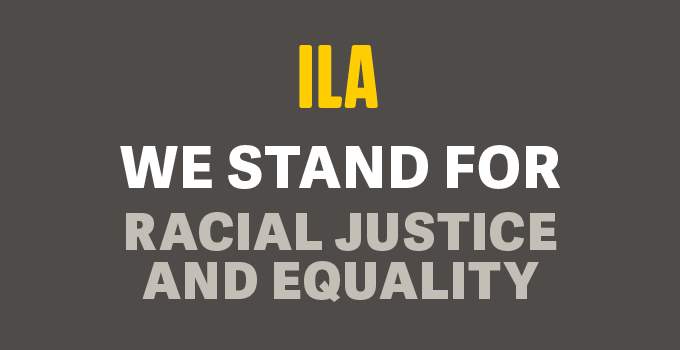 In response to the tragic murder of George Floyd on May 25, there have been widespread demonstrations around the world calling for systemic changes to end racial injustices. The editorial teams from our three academic journals Reading Research Quarterly, Journal of Adolescent & Adult Literacy, and The Reading Teacher composed a joint statement about how to counter the racism within the academic setting. Below are the four steps identified by the ILA academic editorial teams, why each is important, and how ILA’s journals will rise to these challenges.
In response to the tragic murder of George Floyd on May 25, there have been widespread demonstrations around the world calling for systemic changes to end racial injustices. The editorial teams from our three academic journals Reading Research Quarterly, Journal of Adolescent & Adult Literacy, and The Reading Teacher composed a joint statement about how to counter the racism within the academic setting. Below are the four steps identified by the ILA academic editorial teams, why each is important, and how ILA’s journals will rise to these challenges.
1. Acknowledge, value, and support BIPOC colleagues and students.
This work involves learning about histories of oppression, practicing anti-racist behaviors, and participating in just causes. It also involves looking beyond traditional research positions to see value in challenges to hegemonic positions and expansion of research methods. Last, it involves mentoring as well as actively promoting and collaborating with BIPOC scholars.
ILA’s journals will activate this by promoting and supporting BIPOC scholars, including authors and editorial board members. We will do this by disseminating the work of BIPOC scholars through social media and other distribution outlets, as well as by providing more mentoring support to BIPOC scholars who hope to publish in ILA’s journals.
2. Find ways to encourage and initiate more literacy research submissions that focus on supporting BIPOC communities.
As journal editors, we are calling for manuscripts that provide deeper and better understandings of literacy and its role vis-à-vis BIPOC communities. We specifically ask researchers to submit manuscripts that highlight the voices and experiences of marginalized students, teachers, and underrepresented communities, as well as take a strength-based view.
We have worked to make ILA journals a place where all methods and perspectives can find a home, but we are not receiving the volume of submissions needed in this vein. Recruiting and serving as reviewers allows us to fast-track submissions and adjudicate work with as much speed as we are capable.
3. Get involved in efforts to fund more literacy research that addresses inequities across racial groups.
All funding agencies depend on us as literacy researchers to tell them what work is worthy of recognition and support. We can and should make this a priority. ILA journals will support this by publishing more work by BIPOC scholars that attends to experiences of marginalized communities, which we hope will fuel interest and support of scholars applying for such grants.
4. Increase the quality of literacy instruction grounded in representative curricular materials supported by research that addresses the specific needs of BIPOC teachers and students.
Right now, because of the COVID-19 pandemic, traditional literacy instruction for students from nondominant communities has to a large extent ceased or slackened. Unless we can figure out ways to better provide this instruction (through digital devices, access to the internet, curriculum that meets the needs of BIPOC students), the literacy learning needs of BIPOC students will suffer. Again, we believe that our community of literacy researchers is uniquely well-positioned to address this need.
Robert T. Jiménez and Amanda Goodwin
Editors, Reading Research Quarterly
Kelly Chandler-Olcott and Kathleen A. Hinchman
Editors, Journal of Adolescent & Adult Literacy
Robin Griffith and Jan Lacina
Editors, The Reading Teacher
Marcie Craig Post
ILA Executive Director